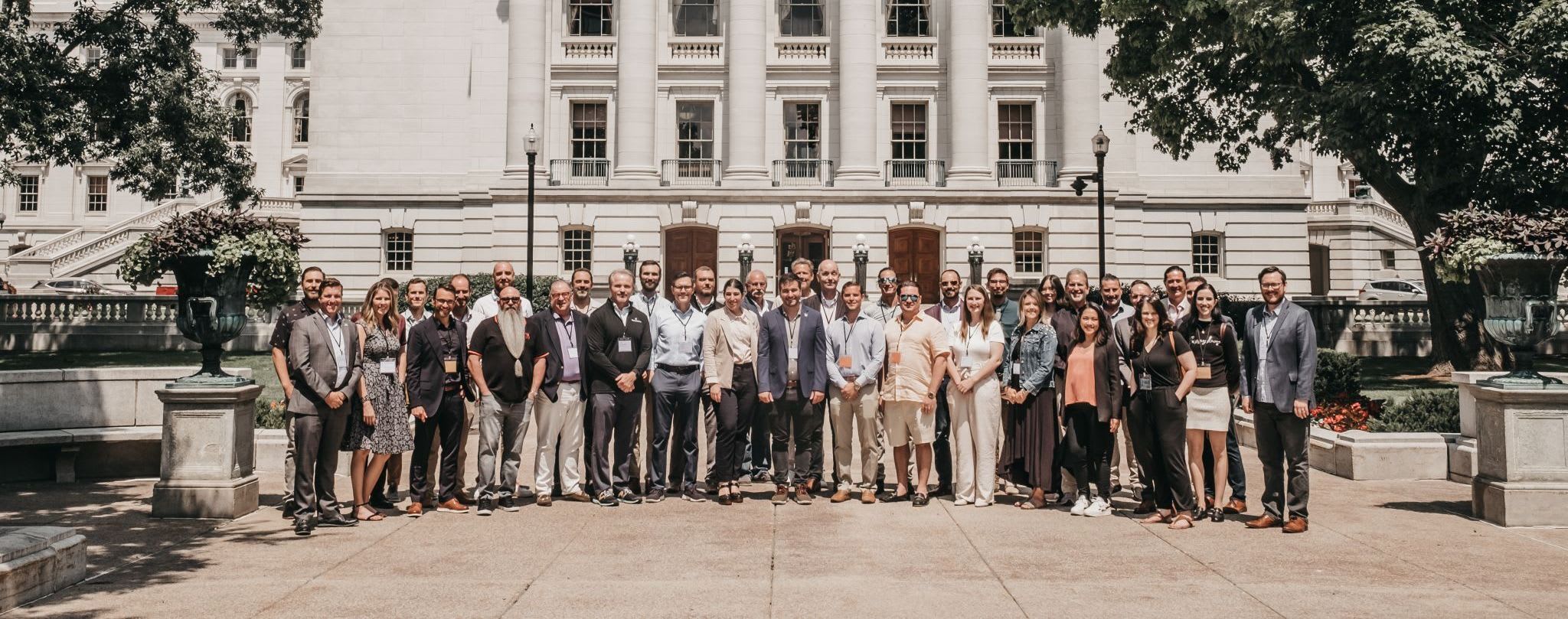
We are still basking in the glow of our inaugural Behavioral Healthcare Marketing Summit, held in late July here in lovely Madison, WI. We had marketing professionals and facility owners join us from all over the world, from South Africa to New Jersey. Attendees seemed to intuitively adopt the approach used in many recovery circles: we saw the similarities rather than the differences. Although marketing techniques range from grass-roots “old school” approaches to “new school” digital tools, we recognize that we are all working toward the same goal: helping more people find treatment and maintain a life of recovery.
1. It’s still all about people:
We spend our days worrying about our census, SEO, the million little problems of running a business and much more. But we all contribute to helping real human beings find and navigate treatment, and helping them find a life of long-term recovery when they leave treatment. Human interactions are the only way that happens. And behavioral healthcare treatment providers and marketing professionals need that connection as well. The work we do is hard and important, and most of us don’t get to talk to like-minded people doing this work.

2. Reviews matter.
We all know it but we went deep on how to make the most of them.
- Reviews can say things marketers can’t. Use that by pairing your call to actions (call, verify insurance, etc.) with the voice of the customer (reviews and testimonials).
- “The volume of reviews and velocity of reviews makes more of an impact than the actual ratings themselves.”
- It has to be someone’s job. If you don’t have someone responsible for building your reviews process and constantly improving on it they will never become an asset for your business.
- Create a feedback loop to make improvements. From one attendee “ Once a month, we look at the patterns; we address the clinical leadership team or operations team to be able to talk about the patterns that we’re seeing, [including] helpful feedback.”
- You can ask Google to manually review missing reviews? You just need to fill out an appeal form, stating that you believe there are missing reviews. The pro who delivered this tip at the Summit indicated that he does this every few months, and once had 10 missing reviews restored – for a single location!
- A human touch matters. You can send a dozen emails asking people to submit a review, but if you get a call from someone at the treatment center where you started your recovery journey, you’re much more likely to engage and provide a review.

Explore undefined Treatment Centers
3. Usability Testing has a lot to teach us about our product.
Many attendees admitted they don’t regularly run user tests but realized it’s a practice they need to be doing. Watching users navigate our own site offers a fresh pair of eyes, and can reveal opportunities for a better user experience; things that seem painfully obvious to us, immersed as we are in our own product/ website, are often not so obvious to the typical user. Here are a few keys to doing it well and a real user quote that highlights it.
- Cut the Jargon, or at least explain it – “I have no idea what the 12 steps even are.”
- Subtle differences in photography can have big impacts – “It’s a little more posh”
- Use 3rd party validation and workflows to increase conversion rate – “I wouldn’t trust the website”
UserTesting.com is a great tool we at Recovery.com have used extensively.

4. Connecting with other Behavioral Health Marketers helps us all serve patients better.
There was an abundance of open-hearted conversations and exchanges of information, tools, and approaches that have worked for them. One attendee shared: “This Summit was more of a family gathering than a business meeting. Everyone shared their points of views, their tips and guidance in order to better serve all of our customers.” If you don’t have a regular practice of meeting new people in the industry, start one. One great way to start is finding us at an upcoming event. We’d love to introduce you to other like minded professionals.

5. Both the “Old School” and “New School” approach to Behavioral Health marketing are important.
The “Old School” approach relies heavily on nurturing human relationships, whereas “new school” techniques tend to live in the digital space. When meeting people where they are, both approaches are valuable. One of our attendees talked about their robust alumni program, which includes a weekly Zoom call, as well as a monthly in-person “Family Dinner” for alumni and their families.
However, many patients seeking care are nowhere ready for a live conversation; they simply want to explore online, to see what options are out there. Obviously we believe that digital marketing is an integral part of a behavioral healthcare marketing strategy, but we know that building relationships with the patients in your treatment program is always going to be important: word-of-mouth referrals from humans who have gone through your program are the best marketing in the universe.

We think the Summit was a big success, but here are the words of a few attendees.
“I loved the emphasis on people – marketing to people, speaking to people, putting people at the center of care, nurturing people. At a time where there’s so much noise about SEO and ranking and digital, this was refreshing to hear.”
“Really loved the panel format and that many of the speakers were truly passionate and knowledgeable, actually hearing and seeing the website reviews were great, getting into actual specific details of strategies and why they work”
“This is by far the most impactful behavioral health marketing summit in existence.” (we swear someone actually wrote this in our post-event survey)
Hope to see you at the 2nd Annual Behavioral Health Marketing Summit in Summer 2025!
Our Promise
How Is Recovery.com Different?
We believe everyone deserves access to accurate, unbiased information about mental health and recovery. That’s why we have a comprehensive set of treatment providers and don't charge for inclusion. Any center that meets our criteria can list for free. We do not and have never accepted fees for referring someone to a particular center. Providers who advertise with us must be verified by our Research Team and we clearly mark their status as advertisers.
Our goal is to help you choose the best path for your recovery. That begins with information you can trust.






